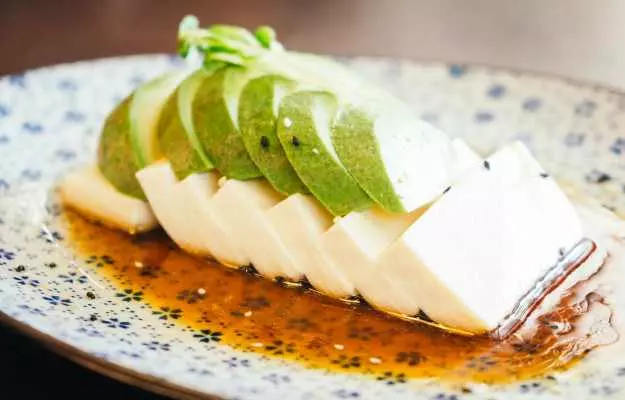Tofu, also called bean curd, is made by fermenting soy milk and pressing the coagulated curds into blocks of varying firmness. Soy milk is a type of popular plant-based milk that is made by soaking, grinding, boiling and filtering soybeans. Uncooked tofu is usually available as blocks in the market. The colour of the tofu depends on the type of soybeans used to make it and can range from opaque white to beige with a yellow tinge. Traditionally, tofu originated in Chinese cuisine and found its place in the kitchens of neighbouring Southeast Asian countries like Japan, Korea, Singapore, Thailand, Vietnam, Indonesia and the Philippines. As more and more people across the world move away from dairy and meat products, tofu is increasingly incorporated into daily diets as a plant-based alternative source of energy and protein. Many recipes have been adapted and new ones created around tofu to easily make it a part of people’s diet. Tofu has a very subtle flavour on its own and can easily absorb marinades and spices due to its spongy texture and become very flavoursome. In India, firm tofu is often used as a substitute for paneer, a popular Indian fresh cheese that is central to many delicious Indian recipes.
98% Savings - Buy Urjas Massage Oil Just @9 Rs
X

- हिं - हिंदी
- En - English


























